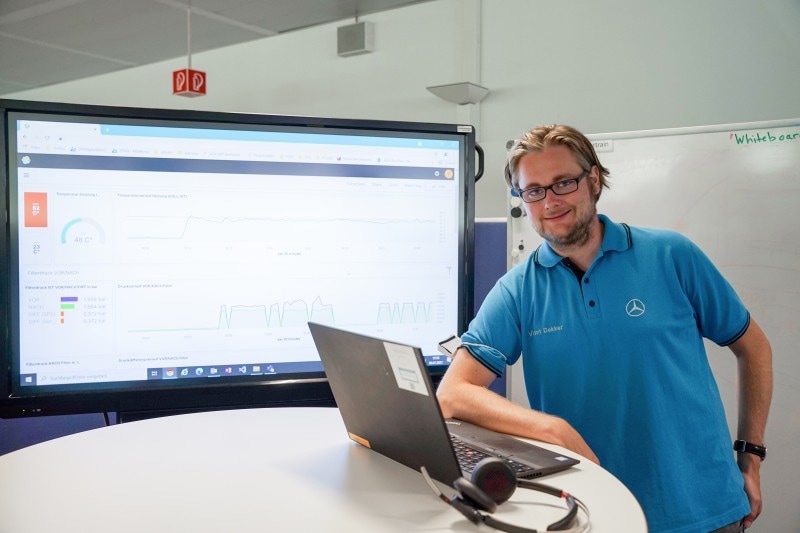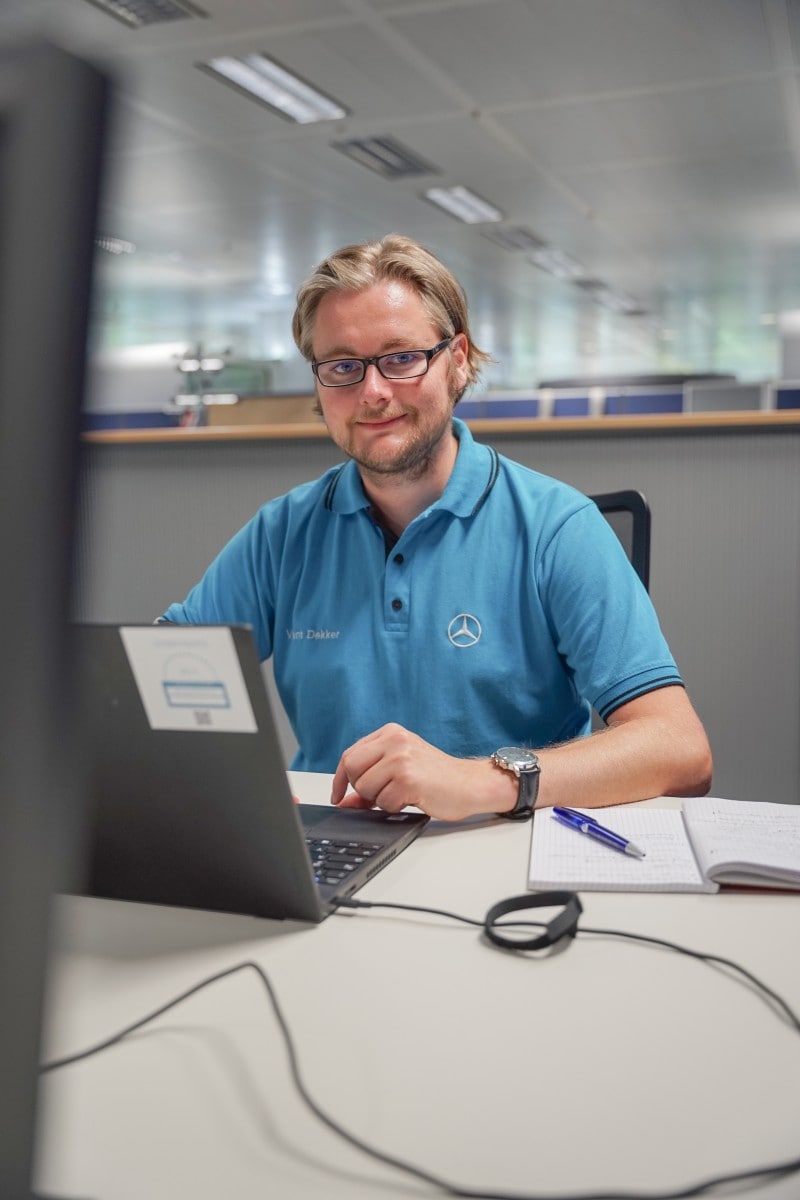How does your team look like?
There are seven of us in total. Our team leader studied mechanical engineering and has already worked on digitisation projects in the past. Two other colleagues are responsible for data analysis and visualisation. Our Data Engineer also has a technical background and is the expert when it comes to retrieving data from production facilities. In addition, our trainer for cultural change has been with the company for more than 30 years. He has got a lot of experience from working in production. In the technical project management, I am responsible for the coordination of analytical topics. I work very closely with our PhD student on this. He researches explainable AI and is an absolute expert in his field. Our team is a good example of digital transformation, as most colleagues have familiarised themselves with the topic "on-the-job".
How did your personal path in becoming an AI expert and joining Mercedes-Benz look like?
My path is a little bit special, because I originally studied economic science with a focus on macroeconomics. After completing my Master's degree I was a doctoral student at the University of Hohenheim, in Stuttgart, where I worked on statistical methods to measure the effects of tax policy on consumer behaviour. When I completed my dissertation in 2017, I continued to work at the university as a research assistant. Then somebody told me about an open job position at the company. I took a closer look at the tasks and at first I was surprised that my economics and statistics background is also sought and needed in the field of production technology.
So you started your career in the production environment. How were the first weeks for you?
Very good. I'm sure it was also because the topics excite me a lot. Artificial intelligence and data analytics are key fields that are already significantly shaping the industry today. What helped me on the one hand, especially in the beginning, is that we have a strong dynamic in our team and support each other. If I have questions about production-specific topics, my colleagues are always there to help me. And on the other hand, I contribute my knowledge on statistics. Our mix of expertise is very helpful for data analytics and AI. Our field is still so young that we try out new things almost every day and discuss solutions in front of the whiteboard. At Mercedes-Benz, we have the opportunity to take this field to the next level.
,xPosition=0,yPosition=0)



,xPosition=0.5,yPosition=0)
,xPosition=0.5,yPosition=0)